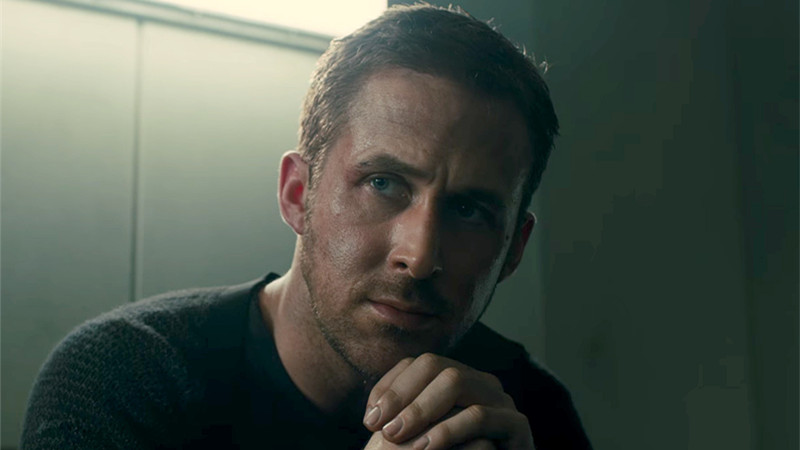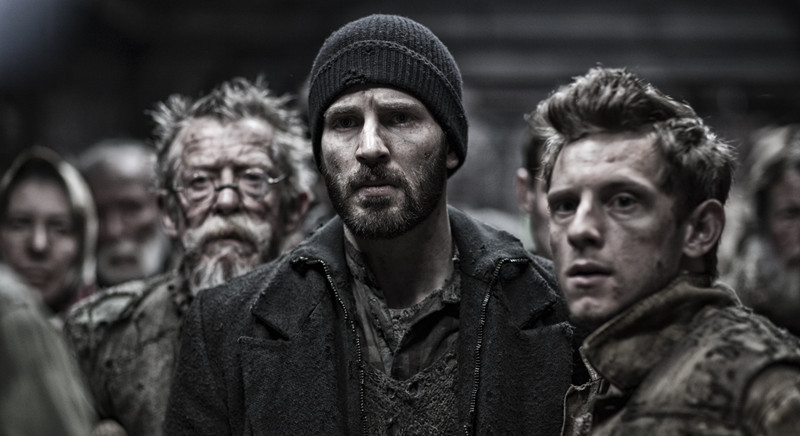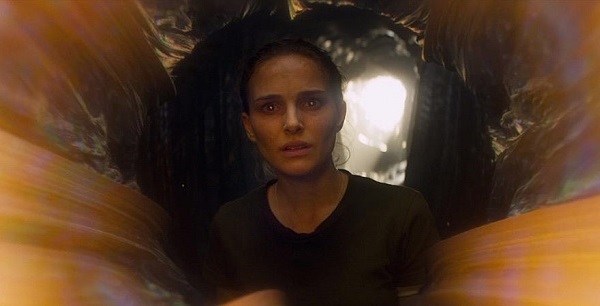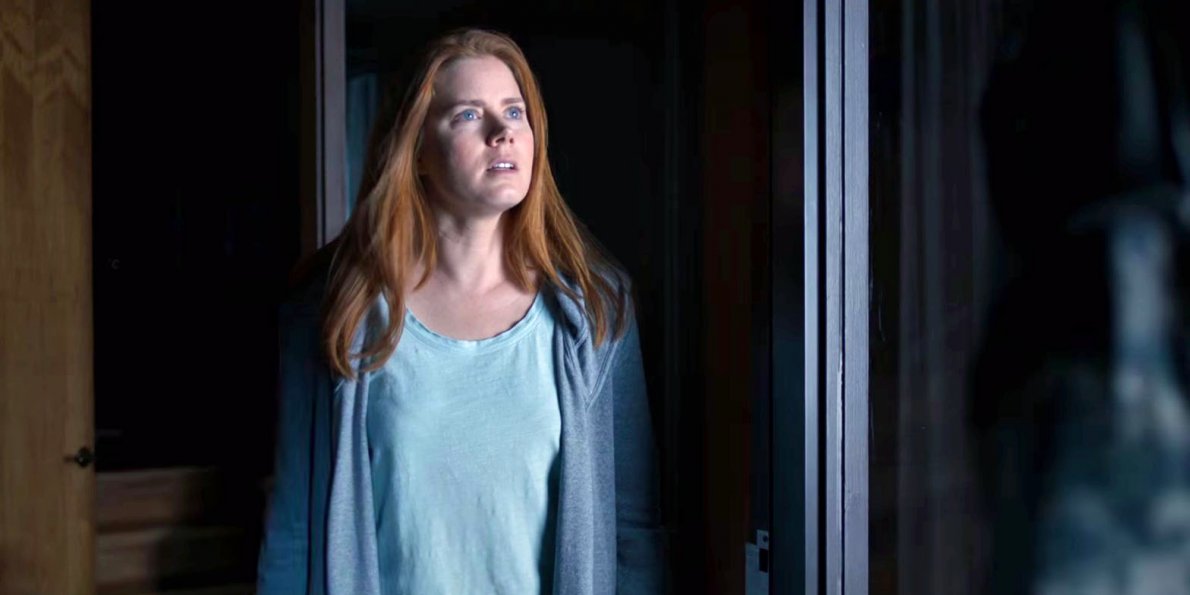5. Mother! ( 2017)

True originality comes to the art form of filmmaking more seldom than the disposable, fast-food versions that are forgotten the next morning. It is a shame when a genuinely original, serious, and passionate work like Darren Aronofsky’s film Mother! is not just panned but ridiculed so vehemently by audiences and critics. The infamous “F” grade from CinemaScore felt it worthy to place Mother! next to other movies such as ‘Disaster Movie’ and ‘Alone in the Dark.’
Mother! is a film with spot-on acting, incredible visuals, camera work, and blocking, along with a ponderous allegory that begs for deep reflection. The film is not only ahead of its time because it is so underappreciated. It includes themes that carry the film into hard prophetic questions about the self-destruction of humanity and environmentalism. By the end, the film spirals out into a fiery whirlwind of destruction distilled from the old testament and poured into an alchemist’s crucible.
Aronofsky is quoted as saying, Mother! is a “punk-rock movie that comes at you.” The hallmarks of punk rock include being loud, fast, and in your face. The genre is also known for its proclivity to subvert the mainstream. As well as provoke a feeling of anger. Some, if not most, audience members and critics believe this to be a bad move on the part of Aronofsky. So much so that it deserves the lowest marks a film can receive.
However, those same critics cannot say the filmmaker was unsuccessful. Mother! is perhaps the loudest, fastest, and most in your face allegorical tale masked as a manic home invasion movie ever projected onto the screen. However with the adulation of filmmakers like Scorses and others, Mother! is sure to find its place in the history of cinema to come.
4. Blade Runner 2049 (2017)

History, in some cases, is bound to repeat itself. In the case of Blade Runner 2049, the future of this film will hopefully take the good with the bad. Both films did not receive the initial success needed for a big budget sci-fi such as these. Ridley Scott’s ‘Blade Runner,’ however, pushed forward into the future with a cult following that influence an entire genre of film, anime, video game, and novel developments.
The style, the mise-en-scène, the visuals, the characters, the music, the existential and philosophical story all worked together at a level so original and advanced that it was almost overwhelming. Blade Runner 2049, directed by Denis Villeneuve, is just as engrossing, immersive, and dynamic as it’s predecessor and works perfectly as a companion piece to Deckard’s continued storyline.
The source material for Blade Runner comes from the mind of the late Philip K. Dick in his novel “Do Androids Dream of Electric Sheep?” A man so far ahead of his time that he was contemplating the simulated reality theory and many other maddening possibilities in a speech titled, ” How To Build A Universe That Doesn’t Fall Apart Two Days Later,” back in 1978.
Both films and television series have been based on his writings and while they can never fully capture every bit of his unique and predictive scope. They all contain his relevant and relatable fear that the thing we call reality may not be worthy of its definition.
A notion of his that he often times makes utterly convincing. Blade Runner 2049 continues this tradition which has the main character questioning his existence, his past, and his future. The love interest also contains this level of paranoia and has ‘K’ wondering if everything he thought he knew has all been apart of some large-scale fabrication.
The other hovering question here is, in a world full of perfectly bio-engineered android replicants and believable hologram emotion machines, what exactly is real anymore and how much does it even matter?
3. Snowpiercer (2013)

A train built to house the remaining lives of the world after a post-apocalyptic ice-age event isn’t exactly believable, but it is also not the goal of the film either. In the same way, Plato’s Cave isn’t meant to be narratively realistic, Snowpiercer, directed by, ‘Okja’s’ Joon-ho Bong, acts as an illustration with a multi-layered allegory. The film ends with a mighty climax, an anagnorisis leading to a tragic peripetia that gives way to a beautiful moment of revelation.
The film sets up the train, Snowpiercer, as a microcosmic class based system. The unfortunate souls at the back of the train are the poorest and most oppressed of the groups throughout the train. The main protagonist believes if he could get to the engine room, the front of the train, in a revolutionary uprising that he and his fellow insurgents could change the system for the greater good. We have seen real historical characters play out this cyclical experiment time and time again throughout history only to wind up as the villain.
What is most interesting here is not the fact that this ultimate tragedy will play to its most logical conclusion. But rather the psychological and sociological character study of why is it happening time and time again. The film is making the bold statement that all governments and all systems of the like are fundamentally flawed and will become corrupt and immoral beyond imagination. It may be ignorant to believe that one can change its course.
Like a train, it is fixed towards a specific direction. The film also gives a glimmer of uncomfortable hope. Instead of trying to fix a system beyond repair, perhaps taking that anarchic step away from the train and into the cold wilderness is a better option than continuing towards our ultimate demise.
2. Annihilation (2018)

Not since Andrei Tarkovsky’s Sci-fi marvel ‘Solaris’ has a film of this genre peered so deeply into the human psyche. Dealing with concepts such as identity, the self-destructive nature of humanity, as well as the guilt and repair that comes after. These ideas are all unpacked throughout the film into a shimmer of self-reflective paralysis that stays deep inside the conscious.
Annihilation, directed by Ex Machina’s Alex Garland, much like Solaris deals with an alien entity without any distinguishable anthropomorphic personification. It is often easy for us as humans to project our feelings and emotions onto our fellow man and woman, pets, and, in some cases, inanimate objects.
It exhibits a sincere desire to relate to the things around us that we may not understand on some level. The use of a nonhumanoid alien entity provides a perfect canvas to work with these kinds of ideas. Ideas carefully explored with a deliberate brushstroke and an eye for what makes sci-fi a timeless genre.
1. Arrival (2016)

Like the best Sci-fi films of this kind, Arrival, directed by ‘Blade Runner 2049’s’ Denis Villeneuve, steeps its multifaceted narrative in heartfelt metaphor that can be analyzed for years to come.
What separates Arrival from the pack is the way it perfectly synergizes its narrative structure with the themes and metaphors it delves profoundly and confidently into. It is a film that is more than the sum of its parts. Nothing here is wasted every image, every moment has meaning and connects with another moment and another metaphor becoming more thoughtful than the last.
When the alien ship arrives, it is investigated with extreme caution. The world must band together to learn the entities complex language. We collectively must find out if they are in fact peaceful. What are their intentions? How do they view us and our intentions? The questions become seemingly endless and maddening.
Language and communication shine as a critical theme showing how it can shape the very way in which we think and perceive reality. Upon a second viewing of the film, it’s importance grows and becomes more than a just a narrative, more than a mere movie.
It is a guide, it is a rosetta touchstone that challenges us on a global level. Can humanity put aside our fears and differences, physically, linguistically and the other? Will our tribal distrust of each other win in spite of our need for a connective fellowship to survive on a global scale? Or will we finally find the peace required to move on into a brighter future?
Author Bio: Jake Ruby is a writer, filmmaker, and campaign DM. As well as co-owner of hiddenfortressfilms.com. Jake abides underneath grey Ohio skies where he likes to take long walks passed burning rivers while being accompanied by black squirrels. He can be found catching a flick at the Nightlight Cinema or discussing film with anyone, anywhere, at any time.